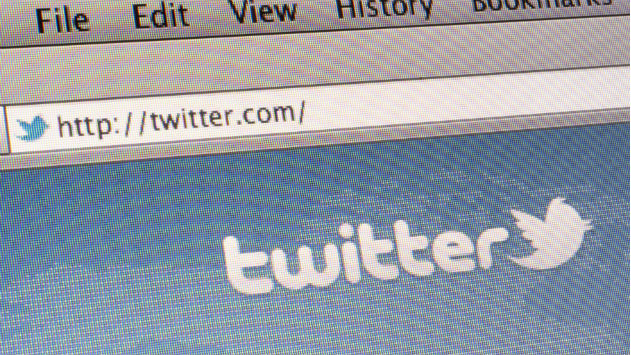Callie Schweitzer from “TIME” Talks Intersection of Politics, Twitter
Published at
 Scott Eells/Bloomberg via Getty Images(NEW YORK) — We asked Callie Schweitzer, the director of digital innovation at TIME, to answer five questions about the intersection of politics and Twitter, which went public this week.
Scott Eells/Bloomberg via Getty Images(NEW YORK) — We asked Callie Schweitzer, the director of digital innovation at TIME, to answer five questions about the intersection of politics and Twitter, which went public this week.
1. Broadly speaking, how has Twitter changed American politics?
Schweitzer: Twitter has given the public an “all access pass” to politicians in a way we’ve never seen before. It’s lowered the barrier to entry for starting a conversation with an elected official, and in our hyper-digital age, that’s incredibly exciting. For the politicians, it’s given them another platform on which to communicate with constituents and the opportunity to appear more human and accessible. It’s cut out the middleman in communicating.
2. Has the change been for the better in your view? Any drawbacks? Does the limitation of characters on Twitter lead to the oversimplification of issues that simply are not simple?
Schweitzer: The change has absolutely been for the better. Any time the public has access to more information, we are becoming a freer and more open society. The most obvious drawbacks are the spreading of misinformation and the PR-ifying of a politician’s presence. It’s a balance. But what excites me most is seeing people talking about important political issues on social media. The conversation around TIME‘s Chris Christie cover this week on why he was “The Elephant in the Room” is the perfect example of this. People have a platform to discuss things that matter to them with people they don’t know and may never meet. The network effect of seeing other people talking about something is also quite strong on Twitter and encourages others to join in.
3. When it comes to elected representatives in the United States, who does Twitter well, in your view, and why?
Schweitzer: Cory Booker is the classic example here. He’s built an enormous following and become a household name largely because of his hands on approach to Twitter. He’s constantly interacting with his followers and often asks them to direct message him their phone number or location so he can help them solve a problem they’re complaining about. Fun fact: Booker appears twice on TIME‘s list of the 140 moments that made Twitter matter.
4. In terms of mistakes made by elected representatives on Twitter, does anything come close to Anthony Weiner sending a public tweet when he meant to send a direct message?
Schweitzer: Nothing to that degree comes to mind, but there have certainly been some gaffes or tone-deaf tweets here and there.
5. Everyone will be watching Hillary Clinton as 2016 approaches. What do you make of her Twitter strategy so far? She hasn’t been tweeting for that long. Any advice for her?
Schweitzer: I think her Twitter strategy is brilliant. Her bio (“Wife, mom, lawyer, women & kids advocate, FLOAR, FLOTUS, US Senator, SecState, author, dog owner, hair icon, pantsuit aficionado, glass ceiling cracker, TBD…”) and her capitalizing on the “Texts from Hillary” meme with her profile picture shows she has a great sense of humor and is wonderfully self-deprecating even as one of the most powerful women in the world. Though she’s only tweeted 29 times since … June 10, it gives more weight to what she is saying. A personal favorite of mine is her RT of Chelsea’s selfie of the two of them backstage at the Clinton Global Initiative.
Copyright 2013 ABC News Radio


